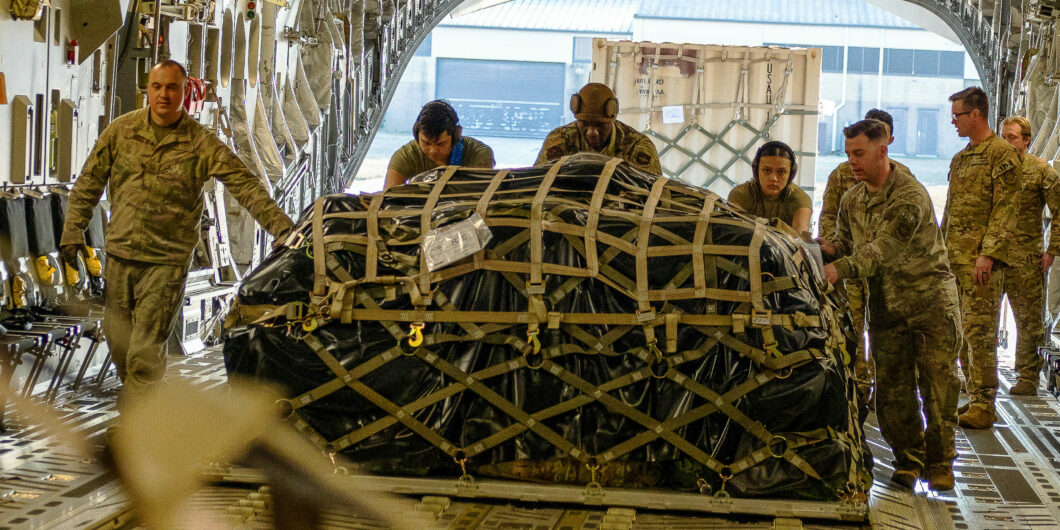Russia's hegemonic ambitions are supported by a political theory that celebrates "Eurasians" as a distinctive people.
Supporting Our Friends
I am grateful for Zack Yost’s August 17 critique of my August 4 article on Ukraine. There are certainly points on which we agree. Mr. Yost is right to be concerned about the fiscal condition of the United States. He is also quite right that the West needs to act decisively to replenish military stockpiles, which is why Britain, Germany, and the United States are significantly expanding production of artillery and tank shells. I do not, in fact, believe that “nothing is beyond our capacity.” I believe it is not beyond our capacity to aid Ukraine while improving our cities, especially since the problems faced by our cities are not primarily financial in character but one of policy choice. My argument is not that we have unlimited resources, but that (having thus far delivered no tanks, no fighter planes, and insufficient de-mining equipment) we have not approached those limits. Moreover, announcing in advance the upper limit of our aid is like telling the other players in a poker game how high you are willing to bid.
Mr. Yost is disconcerted that I referred to Vladimir Putin as a “Leninist.” My point was not ideological but behavioral. Putin possesses a Leninist mentality and acts as Lenin would, including his tendency to probe for mush and to act with a ruthless disregard for the eggs that must be broken to make his omelets. If we are going to say what Putin ideologically is not, we should acknowledge what he is: a believer in Russian World, the view that Russia’s former imperial holdings are culturally tied to Moscow and should be reattached. The underlying reason for Russia’s invasion is not that a free Ukraine tilting to the West poses an existential threat to Russia. In any case, NATO membership for Ukraine was going nowhere in February 2022. The underlying reason for the conflict is that Putin’s government does not recognize the right of Ukraine to exist as an independent country.
Mr. Yost also makes the astonishing claim that the national interest “makes no appearance” in my essay. The words “national interest” do not appear only because I judged readers capable of drawing their own conclusions. What I said was:
If the goals are worthy—if it is worthy to prevent the annihilation of a free and independent friend of the United States and the West, to prevent a major victory of the global authoritarian axis of Moscow, Beijing, and Teheran, to prevent the reconstitution of the Soviet Union or Russian Empire (take your pick), and to prevent the Russian army from positioning itself adjacent to five more of our central European NATO allies—then we should provide the aid.
For the sake of clarity, I will rephrase this. It is contrary to the interests of the United States to allow the annihilation of a free and independent friend of the United States and the West. It is contrary to the interests of the United States to permit a major victory of the global authoritarian axis. It is contrary to the interests of the United States to allow the reconstitution of the Soviet Union or Russian Empire, an event that would reverse the most important strategic victory of US foreign policy since 1945. It is contrary to the interests of the United States to allow the Russian army to position itself adjacent to five of our central European NATO allies. Opponents of aid refuse to acknowledge the risks to the United States that would accompany the abandonment of Ukraine, and Mr. Yost is no exception.
Ukraine may or may not be a friend of the United States 100 years from now. Today, it is. It is in our interest to act accordingly.
His claim that we do not have any alliance or obligation to assist Ukraine is only half true. There is no alliance, but the United States is signatory to the Budapest Memorandum of 1994, in which Ukraine agreed to surrender its leftover Soviet nuclear weapons in exchange for a guarantee of its independence, sovereignty, and inviolable borders. Other signatories were Russia and Britain. When Russia reneged, Britain acted on its obligations, as have we—because it is not in the interest of the United States to betray its obligations.
It is also not in the interest of the United States to acquiesce in Russia’s systematic war on the moral norms that constrain nations. Mr. Yost fears the further destruction of Ukraine, quite appropriately, but without ever acknowledging that it is Russia that is destroying Ukraine through its wanton conduct. Instead, varying forms of moral equivalency are advanced to promote the conclusion that peace would best be served if the United States ceases providing the Ukrainians with the means of self-defense. That Ukraine is fighting for its life and its liberty makes no appearance in his narrative. Mr. Yost says “No blank check,” but would be more persuasive if it wasn’t so clear that he prefers no check at all.
He concludes that “states do not have friends, only interests.” Another version of this quote, preferred by statesmen, says that states do not have permanent friends, only permanent interests. The latter is a trenchant observation, but the former is nonsensical. It is in the interest of every state to have friends. It is usually against their interest to allow their friends to be conquered by their adversaries. Ukraine may or may not be a friend of the United States 100 years from now. Today, it is. It is in our interest to act accordingly.



